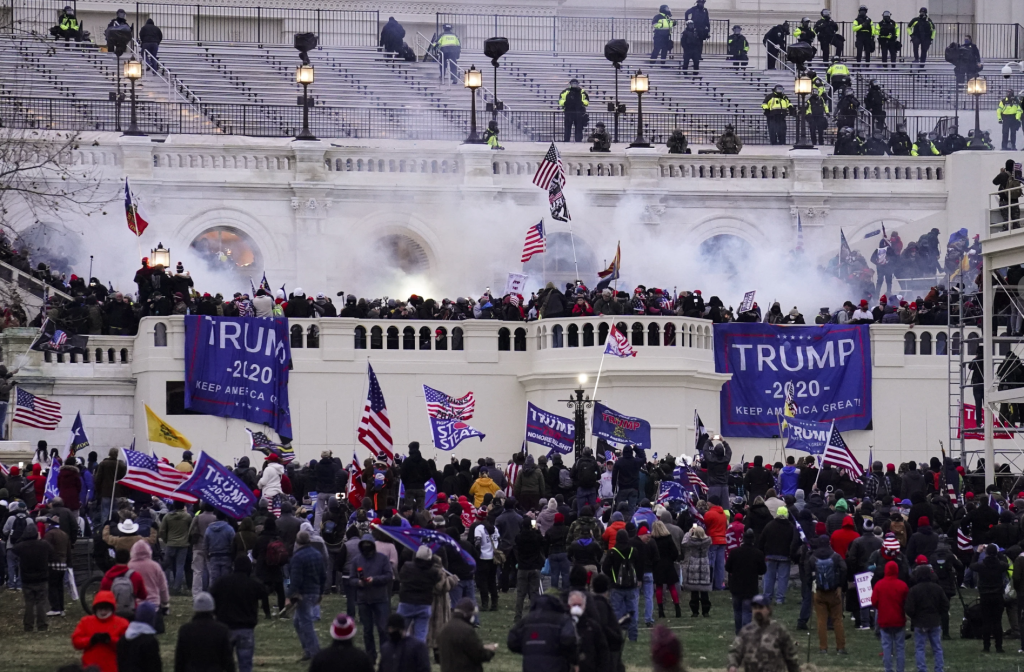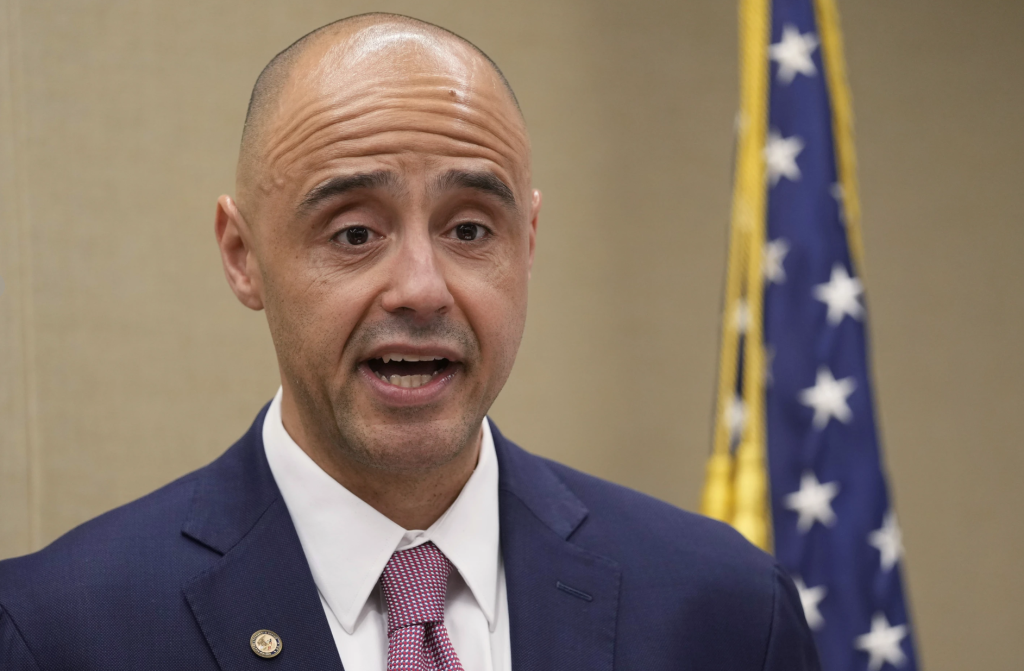Pardoning rioters who stormed the U.S. Capitol four years ago can’t erase the truth about what happened that day, the top federal prosecutor for Washington, D.C., said Tuesday as he prepares to leave office.
“There is no undoing these prosecutions,” U.S. Attorney Matthew Graves told The Associated Press. “The vindication of the rule of law is something that has already occurred. And no one can take that away.”

Graves helped lead the largest investigation in Justice Department history, overseeing hundreds of cases against rioters who stormed the Capitol on Jan. 6, 2021. His successor, whoever that will be, may preside over an abrupt end to that work.
President-elect Donald Trump has vowed to pardon Capitol rioters when he returns to the White House next week, but Graves said pardons can’t undo “the record that was built through these prosecutions and the accountability that has already been imposed.”

“There will always be a public record of what occurred on January 6th, and people who care to know the facts will be able to find out the facts,” Graves said.
Graves, who has faced a torrent of online abuse and calls for retribution from Trump supporters, said he has no plans to seek a pardon for himself before President Joe Biden leaves office.
“I don’t even begin to know what I could possibly be pardoned for as a prosecutor,” he added. “There is no crime here. There is just public servants doing their job and enforcing the law.”
Graves, who took office in November 2021, plans to step down Thursday ahead of Trump’s inauguration Monday. Trump has vowed to issue pardons to Capitol rioters on his first day back in the White House, repeatedly referring to them as “hostages” and “patriots.”
More than 1,500 people have been charged with Capitol riot-related crimes. Nearly 1,300 of them have pleaded guilty or been convicted by a judge or jury after trials. And over 1,000 riot defendants have been sentenced, with roughly two-thirds receiving a term of imprisonment ranging from several days to 22 years.
Only two Capitol riot defendants have been acquitted of all charges — in both cases by a judge after a bench trial. Many Trump supporters have cited that as evidence that Washington juries can’t be fair and impartial.
Graves believes his office’s near-perfect conviction rate reflects the strength of their evidence. Many rioters used cellphones to record and narrate their crimes and posted confessions on social media in the days following their attack, which disrupted the peaceful transfer of presidential power from Trump to Biden after the 2020 election.
“This is the most recorded crime in the history of the country,” Graves said. “The evidence is just overwhelming in these cases. As someone who is a career prosecutor, it’s rare that you have this much evidence, which is why you’re seeing these outcomes.”
Over 100 police officers were injured while defending the Capitol from a mob of Trump supporters. Trump hasn’t specified whether he would pardon rioters who assaulted officers, but Vice President-elect JD Vance said during an interview televised Sunday that rioters who engaged in violence “obviously” shouldn’t be pardoned. Vance later said there was a “bit of a gray area” in some cases.
Graves said he doesn’t see any basis for a pardon or clemency in any Jan. 6 case. He also expressed confidence that the Justice Department can remain free from political interference.
“I came in as a career prosecutor during a Republican administration,” he said. “I’ve never seen a whiff of political interference in my time as a career prosecutor. I tend to believe past is prologue.”
Graves said combating violent crime in Washington has been his primary focus over the past three years. He believes his office’s efforts contributed to a 35% reduction in violent crime last year in the District of Columbia.
“Prosecutors can influence these crime trends. They don’t control them. There are a host of other actors that are involved,” he said.
Graves said he had planned to leave the U.S. Attorney’s office in 2025 no matter who won the presidential election. In the short term, he is looking forward to taking a vacation.
“And then I’m sure at some point I will transition back to (law) practice, but that’s all to be determined in the future,” he said.